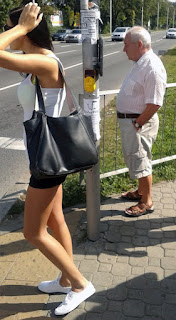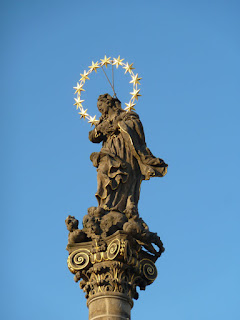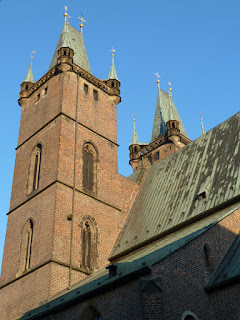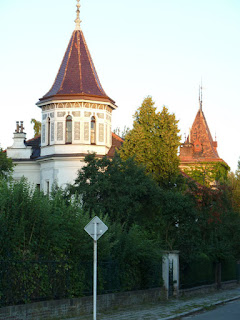Growing up in a society where we are bombarded with advertisements about hot dogs, hamburgers, and steaks, where we are constantly told by our parents and relatives that eating meat is "necessary" and that vegetarianism and veganism are unhealthy, where people who don’t eat meat are often ridiculed and marginalized, it’s hard to come to the realization that not eating meat is the way to go. I, however, believe that it is. From both a personal and societal point of view, vegetarianism and veganism are products of a higher level of consciousness, a higher level of ethics, and, as such, are the next step in the evolution of humankind. The majority of people are still being held back from this realization due to the strong meat-centric way of life that they have been taught from an early age. Still, it’s worth finding the inner strength to break free from your conditioning and to embrace a fairer approach to other animals.
The reason I feel so strongly about the need to minimize or eliminate meat consumption is that I believe that there is a direct connection between eating meat and the general level of suffering in the world. Millions of animals suffer and die daily to feed our meat cravings. By negating this, by dismissing it as insignificant or necessary, we are, whether or not we like to admit it, validating the violence that is inherent in the present system. By saying no to meat, we are making a conscious choice to no longer partake in that violence. We are saying that we don’t approve of the enormous amounts of suffering and killing that goes on daily. Progress occurs any time a person does something to distance him or herself from violent behavior, or from something that causes mass suffering and death. Thus, by distancing ourselves from the above-mentioned cycle of death, we are, in fact, progressing.
When we think of the gladiators of ancient Rome fighting lions, other animals, and each other, most of us would rightfully label this behavior "barbaric". Most of us would agree that it’s good that this no longer happens, that such a glorification of death has no place in our society. Even more modern traditions such as bullfighting are either banned outright or shunned by more and more people, even in countries where they are/were tied in to the local culture. Why? Because as people evolve, they begin to realize that extreme violence, especially when it is tied in to the exploitation, torture, and killing of other sentient beings, has no place in the modern world. This is progress; a step away from activities and traditions that cause suffering and death. Thankfully for humankind, many historic injustices have already fallen by the wayside. One hundred and fifty years ago, slavery was a common occurrence in the world. In many countries, it was deemed normal and natural to own slaves. Slaves were actually considered by many to be "lesser beings", usually because of their nationality or the color of their skin. Children and women were (and in some cases still are) exploited because they are physically weaker and couldn’t protest. All this too has ended, in most parts of the world, because more and more people began to question the morality of these actions, and eventually decided to evolve, to progress to a more fair society.
The next step on the evolutionary path is to realize that the way we currently interact with other animals is wrong. It is not OK to abuse, imprison, torture, or kill other sentient beings, human or otherwise. There are millions upon millions of healthy vegetarians and vegans that are living proof that this is possible. The quicker we wake up to the truth that this is, in fact, a better path than the current one, the quicker we will reach the next step in our evolution.
Friday, August 31, 2012
Thursday, August 23, 2012
Tuesday, August 21, 2012
Monday, August 20, 2012
Learning from animals without exploiting them
One of my core beliefs is that we, as humans, should do our best not to exploit or abuse other animals. This is why I am against sports and entertainment events in which animals are used, whether they be relatively harmless (such as horse racing) or much more so (such as bullfighting, dog fighting, etc.) This is also why I don't support the use of horse-drawn carriages, or any other such mode of transportation that exploits animals. This is why I’m against experimenting on animals, whatever the reason. Some people will tell you that it's OK to experiment on animals to improve our health and lengthen our lives, but this is unethical. I don't consider progress that is a result of the suffering and death of other animals to be real progress. I do not want to extend my life at the expense of the lives of other living beings.
This does not mean, however, that we can't learn from other animals in an ethical way. Animals have a lot to teach us, and we can, indeed, learn without subjecting them to experimentation, and without causing them harm. Historically, there are a lot of precedents for this type of thing, and this is especially true when it comes to incorporating animal movement into the human realm. Examples of this include studying bird flight patterns to learn about aerodynamics, using animal-based moves in certain martial arts, developing technology that mimics the movement of snakes or other animals to get into hard-to-reach places. The truth is, there are many more ways we can mimic the movement of animals to improve our technology, to study them in a non-exploitative way. This is the ethical way to learn from other animals, one that improves our lives without worsening theirs.
This does not mean, however, that we can't learn from other animals in an ethical way. Animals have a lot to teach us, and we can, indeed, learn without subjecting them to experimentation, and without causing them harm. Historically, there are a lot of precedents for this type of thing, and this is especially true when it comes to incorporating animal movement into the human realm. Examples of this include studying bird flight patterns to learn about aerodynamics, using animal-based moves in certain martial arts, developing technology that mimics the movement of snakes or other animals to get into hard-to-reach places. The truth is, there are many more ways we can mimic the movement of animals to improve our technology, to study them in a non-exploitative way. This is the ethical way to learn from other animals, one that improves our lives without worsening theirs.
Thursday, August 16, 2012
Tidbits from the Czech and Slovak republics
Here's a collection of photos that didn't make it to the other posts:
Poprad train station. Not the most beautiful part of the trip.

Fog on the rails at Strbske Pleso


More mountain fog

Outside a theater in Hradec Kralove

Small town Czech railway station scene

Detail on a building in Brno

South Brno, looking a lot like South Chicago

Brno central railway station

Squirrel in the hills outside of Mikulov

Poprad train station. Not the most beautiful part of the trip.

Fog on the rails at Strbske Pleso


More mountain fog

Outside a theater in Hradec Kralove

Small town Czech railway station scene

Detail on a building in Brno

South Brno, looking a lot like South Chicago

Brno central railway station

Squirrel in the hills outside of Mikulov

Wednesday, August 15, 2012
Ostrava, Czech Republic
Mikulov, Moravia, Czech Republic
Tuesday, August 14, 2012
Brno, Czech Republic
Sunday, August 12, 2012
Hradec Králové, Czech Republic
Hradec Kralove was nice enough, though I expected a bit more. The central historic part of the city is fairly compact, and can easily be explored in one day. Outside the center, this is a fairly modern-looking small city with a provincial feel.
Subscribe to:
Posts (Atom)













































